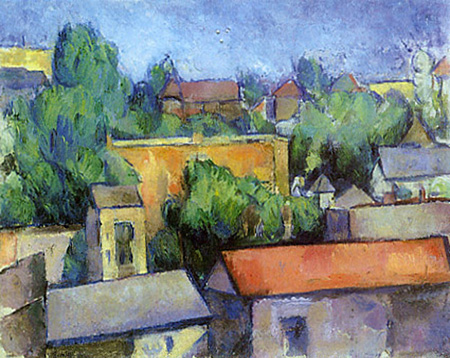If this is the way it is let’s leave,
They agree, and soon the slow boxcar journey begins,
Gradually accelerating until the gyrating fans of suburbs
Enfolding the darkness of cities are remembered
Only as a recurring tic. And midway
We meet the disappointed, returning ones, without its
Being able to stop us in the headlong night
Toward the nothing of the coast. At Bolinas
The houses doze and seem to wonder why through the
Pacific haze, and the dreams alternately glow and grow dull.
Why be hanging on here? Like kits, circling,
Slipping on a ramp of air, but always circling?
(John Ashbery, from Houseboat Days; two readings of the complete poem at PennSound.)
